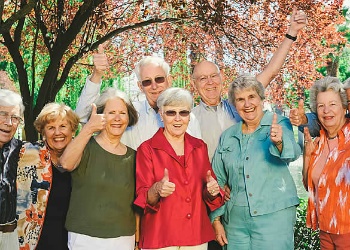 Independent living is a great opportunity for personal growth and development. Living in a community based on wellness and self-actualization sounds like a dream that we all want to partake in. But how long do we have to wait for this dream to become a reality?
Independent living is a great opportunity for personal growth and development. Living in a community based on wellness and self-actualization sounds like a dream that we all want to partake in. But how long do we have to wait for this dream to become a reality?
The U.S. Department of Housing and Urban Development (HUD) Fair Housing Act prevents discrimination on the basis of race, color, national origin, religion, sex, handicap or familial status. This act also prevents housing discrimination based on age; however, HUD created the “Housing for Older Persons” Exemption to protect senior living communities.
So what does this mean? Independent living communities can enforce a minimum age for their residents.
There are two possible minimum ages, both with their own separate rules.
55 or older:
- Intended and utilized for occupants within that age group
- Can be occupied by younger residents, if the following rules are satisfied:
- 80 percent of living units must have at least one resident who is 55 or over
- The community must follow policies and procedures that are in place for 55 or older housing
- Illustrate the intent to house residents within that age category
- Yield to HUD’s regulatory requirements for age verification of residents
62 or older:
- Houses only residents within the appropriate age range
- Determined by HUD to be designed and utilized as housing for seniors
Both versions of this exemption have their own benefits for the community. It all depends on which minimum age is the best option for you. When researching independent living communities, ask which HUD exemption they comply with so that you know going in what to expect. Evaluate the community feel of each and decide for yourself what you enjoy: you might be surprised!
Minimum ages are enacted to protect the community building and programming that senior living communities provide for their residents. It is a way to ensure that they can run efficiently and provide the best opportunities for you.

